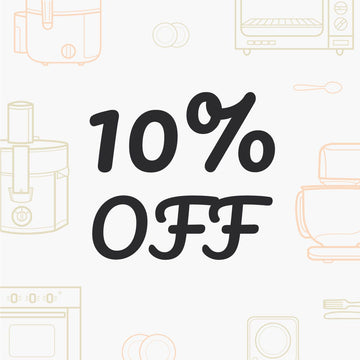Juicer Vs Blender: Which One Is Best For You?
Juicer Vs Blender: Which One Is Best For You?
Juicer Vs Blender: Which One Is Best For You?
In the world of kitchen appliances, juicers and blenders are both popular for making healthy drinks. However, understanding the differences between the two can be key in deciding which one is best suited for your nutritional needs and lifestyle. Whether it’s a juicer or a blender, each has unique features and functions. This article will delve into the specifics of juicers and blenders, helping you make an informed decision.
Understanding the Juicer

Juicers are designed to extract juice from fruits and vegetables, separating the liquid from the pulp. The Ventray Juicer, for example, is a prime representation of a juicer's capabilities.
Types of Juicers
- Centrifugal Juicers: Fast and convenient, these juicers use a spinning blade to extract juice.
- Cold Press Juicers: As detailed on Ventray’s cold press juicer page, these juicers operate at a slower speed to maximize nutrient extraction.
Benefits of Using a Juicer
Nutrient-Rich Juice: Juicers provide a concentrated form of nutrients and vitamins.
Better Absorption: Juice is easily absorbed by the body, making it great for quick nutrient intake.
Considerations
Waste: Juicers leave behind pulp, which means some fiber is discarded.
Limited to Juicing: Juicers are primarily for making juice and are not suitable for other tasks.
Exploring the Blender

Blenders, like the Ventray Pro 600, are versatile kitchen tools designed to blend various ingredients into a smooth consistency.
Types of Blenders
- Standard Blenders: Ideal for smoothies, soups, and sauces.
- High-Powered Blenders: These blenders can handle hard ingredients like nuts and seeds.
Benefits of Using a Blender
Versatility: Blenders can create a variety of foods, from smoothies to soups.
Fiber Intake: Blending retains the fiber from fruits and vegetables.
Considerations
Consistency: Blenders produce thicker beverages due to the fiber content.
Preparation Time: Blending can be a bit slower compared to juicing, depending on the ingredients.
Juicer or Blender: Making the Right Choice
The decision between a juicer and a blender depends on your lifestyle, dietary needs, and what you’re looking to get out of your appliance.
Consider Your Health Goals
Juicing for Cleansing: If you're interested in juice cleanses or a quick nutrient boost, a juicer is more suitable.
Whole Food Nutrition: If you prefer to consume whole fruits and vegetables with their fiber, a blender is the better choice.
Think About Convenience
Ease of Use: Blenders are generally easier to clean and maintain.
Space and Versatility: If kitchen space is limited, a small juicer might be more practical.
For more insights into the world of juicing and blending, consider reading Healthline’s comparison of juicing and blending and WebMD’s guide on the health benefits of both.
Conclusion
Both juicers and blenders have their place in a healthy kitchen. A juicer like the Ventray Essential Ginnie Juicer is ideal for those focusing on pure, nutrient-rich juices, while a versatile blender like the Ventray Pro 600 caters to a wider range of culinary needs, from smoothies to soups. Your choice should align with your health goals, dietary preferences, and lifestyle. Whether it's juicing or blending, both methods offer delicious ways to boost your health and enjoy the natural goodness of fruits and vegetables.










